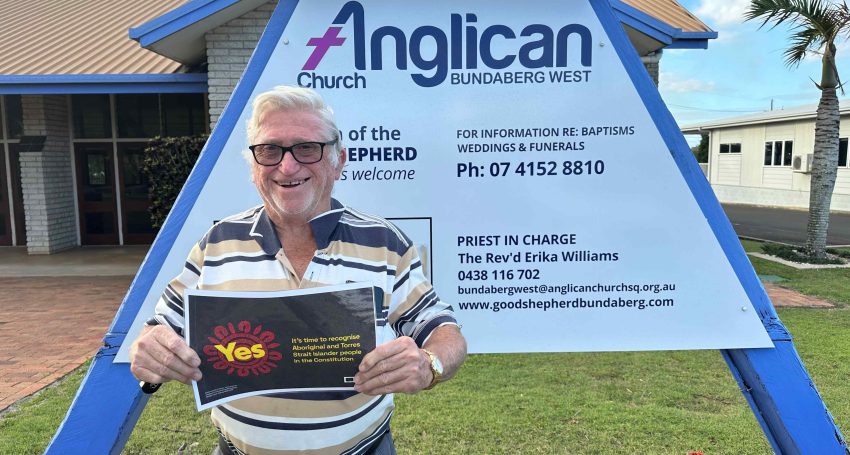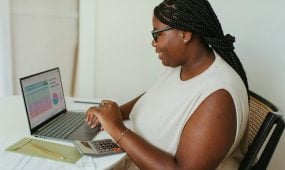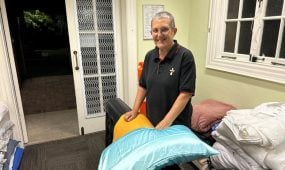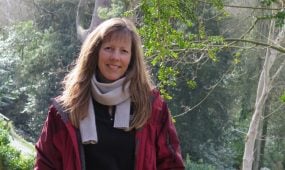Why I am voting “yes” in the referendum: Reg Dean
Justice & Advocacy
“The proposed constitutional amendment is well worded. When I found out in the church presentation that Parliament will determine the Voice’s ‘composition, functions, powers and procedures’, I realised that the constitutional text makes sense. I personally think that it’s all good. I encourage voters to read this proposed constitutional text because, at the end of the day, it’s the only thing we are voting on in the referendum,” says Reg Dean from The Parish of Bundaberg West

Story Timeline
Why I am voting “yes” in the referendum
- Why I support constitutional recognition through an Aboriginal and Torres Strait Islander Voice to Parliament: Aunty Dr Rose Elu
- Why I am voting “yes” in the referendum: Sue Cooke
- Why I am voting “yes” in the referendum: The Ven. Geoff Hoyte
- Why I am voting “yes” in the referendum: Phyllis Marsh
- Why I am voting “yes” in the referendum: Bishop Daniel Abot
- Why I am voting “yes” in the referendum: Adrian Malone
- Why I am voting “yes” in the referendum: The Rev’d Cameron Freese
- Why I am voting “yes” in the referendum: The Rev’d Rick Gummow
- Why I am voting “yes” in the referendum: Uncle Milton Walit
- Why I am voting “yes” in the referendum: Marilyn Wright
- Why I am voting “yes” in the referendum: Barry Kuskopf
- Why I am voting “yes” in the referendum: Aiden Wu
- Why I am voting “yes” in the referendum: Jill Rylatt
I grew in Cairns in the 1950s and 1960s. Most of my friends were Aboriginal and Torres Strait Islander people. We played rugby league together, along with other lots of sports. They were wonderful friends.
I went out into the bush with them a few times when I was young. They invited me to a cook-up in the bush, and they shared snake, kangaroo and witchetty grub with me. I also once watched a corroboree from the scrub. It was really impressive, especially the dancing because they really were like kangaroos or emus in the way they moved. It’s the same kind of dancing that you see today.
Advertisement
I’ve always said that Aboriginal and Torres Strait Islander peoples should be included in the Constitution. However, this year I became concerned about the Voice aspect because of some of the things I’d heard, which I recently realised is misinformation. I attended a presentation a few weekends ago at my church about constitutional recognition of Indigenous Australians through the Voice. We went through the proposed constitutional wording – what we will be actually voting on – and I read the wording, along with detail about the Voice design principles, in a booklet that was given out. That’s when I understood what was really happening.
The proposed constitutional amendment is well worded. When I found out in the church presentation that Parliament will determine the Voice’s “composition, functions, powers and procedures”, I realised that the constitutional text makes sense. I personally think that it’s all good.
I encourage voters to read this proposed constitutional text because, at the end of the day, it’s the only thing we are voting on in the referendum:
Advertisement
In recognition of Aboriginal and Torres Strait Islander peoples as the First Peoples of Australia:
i. there shall be a body, to be called the Aboriginal and Torres Strait Islander Voice;
ii. the Aboriginal and Torres Strait Islander Voice may make representations to the Parliament and the Executive Government of the Commonwealth on matters relating to Aboriginal and Torres Strait Islander peoples;
iii. the Parliament shall, subject to this Constitution, have power to make laws with respect to matters relating to the Aboriginal and Torres Strait Islander Voice, including its composition, functions, powers and procedures.
Editor’s note: This anglican focus feature, written by The Ven. Geoff Hoyte, The Rev’d Michael Stalley and The Rev’d Rick Gummow, provides a timeline showing how the ACSQ came to its position on recognising Aboriginal and Torres Strait Islander peoples in the Constitution through a Voice to Parliament.





